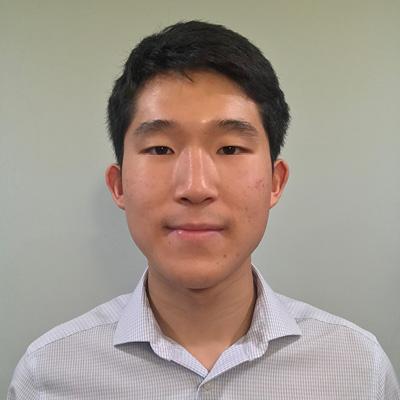“The exposure to different, even opposing, perspectives is not something that should be feared or avoided, but embraced wholeheartedly by anyone who truly wishes to grow as a human being.”
How did you learn about UChicago? When did you first know that UChicago was the right school for you?
I learned about the University of Chicago from an information session hosted by a regional admissions counselor who visited our high school in the autumn of my sophomore year of high school. It quickly became clear to me that the University of Chicago was very different from many other prestigious universities. As a serious student in high school, I was intent on attending an institution that took academics seriously, and the school where "fun comes to die" fit the bill perfectly. It was also during my junior year of high school, or thereabouts, that student protests over academic freedom and free speech began to erupt on college campuses across America. The University's unique response only strengthened its attractive pull; a week before my first class I discovered, upon reading "Academic Freedom and the Modern University" by Dean Boyer, that academic freedom and free expression were, in fact, longstanding hallmarks of the University dating to its founding.
Please describe the moment you received your admission to the College. What was your reaction?
I was immensely pleased. Having applied early, I was thankful for my great fortune and for having avoided the excruciating, months-long period of waiting that precedes regular decision results. My family was also tremendously proud. At the same time, I felt as if I had been deprived of the catharsis that accompanies rejection that so many of my peers had either already experienced or would go on to experience.
What are you most looking forward to at UChicago? Are there classes, subjects, or activities you’re excited to explore?
I am looking forward to reading Plato, Aristotle, and the many other great philosophers who may be deceased, but whose immortal works persist in the liberal arts curriculum of reputed universities like UChicago for the benefit of the uninitiated like myself I am also looking forward to taking language classes, hopefully every quarter, in French and possibly, Korean. I am intensely excited to take political science classes; in fact, John Mearsheimer was one of the few faculty members I had heard of prior to arriving on campus, so I am interested in taking one of his classes.
If you could speak directly to the person whose gift supported your scholarship, what would you say?
Students of diverse backgrounds, experiences, and upbringings from around the country, and even the world, are assembled by universities in a community of scholarship. We are not so much learning or being taught as we are discovering and examining, both the positions taken by the authors of the variegated texts we are reading, and those we hold ourselves. Outside of the classroom, we meet people from places we have never visited who hold views we have never considered for reasons we have never imagined. The exposure to different, even opposing, perspectives is not something that should be feared or avoided, but embraced wholeheartedly by anyone who truly wishes to grow as a human being. The University does more than provide an excellent liberal arts education, steeped in its Common Core curriculum, but it supplements it with a fine array of career resources, equipping students with the tools necessary to succeed not only as engaged global citizens, but also as productive additions to organizations in a plethora of industries and disciplines. It is through the generous support of donors that the many programs and resources available to students can continue to exist, such as the very financial aid packages that allow students to attend the University, as well as career treks and Metcalf internships that provide students with insight and experience in various fields. Thank you for making these opportunities possible.

